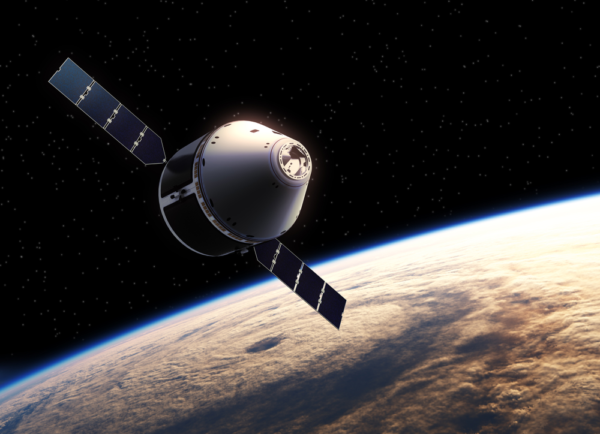
Artificial intelligence transformed seemingly overnight. What was once a science fiction trope has become a reality in less than a calendar year. Since the launch of generative AI tools, companies have adapted AI models to perform increasingly specific functions for various industries. Artificial intelligence in aerospace manufacturing is one example of how AI has made its way into a niche sector. What can AI do for aerospace companies? Consider some applications that are already well developed and some incoming innovations.
Exploring the Frontier of Artificial Intelligence in Aerospace Manufacturing
AI Is Expanding Rapidly in Manufacturing
Although AI first found a strong foothold in technology companies, as one would expect, it’s already seeing rapid adoption in industrial businesses. We’re in the midst of one of the fastest transformations in human history. Expert consultants at PwC believe that every business will utilize AI to some extent within the next 5 years, or fall behind the competition and potentially fail outright. While this might sound like hyperbole, this prognosis isn’t as radical as it may seem.
AI in the aerospace manufacturing industry has the potential to completely automate production, resulting in 24/7 operations with minimal downtime. In addition, it can streamline quality control and testing processes. Product development and prototyping can likewise be accelerated with AI tools. Furthermore, AI can simplify many of your back office tasks. This last point is especially important for industrial companies, which often overlook the impact of their business processes on their bottom line.
AI Can Help You Maintain Equipment
Let’s start with a well-established example of AI use in manufacturing. AI systems are excellent at identifying patterns in data and extrapolating insights from those patterns. When given a bit of direction from human engineers, AI can use these data-driven insights to find problems in your equipment. When those problems are detected before a machine starts to fail, you can perform predictive maintenance instead of traditional reactive maintenance. The difference can mean significant financial savings due to increased uptime.
Suppose you have an industrial mill for aluminum components, a common aerospace scenario. You could monitor vibration data with the machine’s built-in sensors or retrofitted ones that you supply, and set limits based on the manufacturer’s recommendations. This data gets sent to an AI-powered system that learns how the machine typically operates. Over time, it will know how quickly its performance degrades and can then predict when it will next need service. This approach optimizes engineering resources and minimizes downtime.
Using AI to Improve Business Processes
Another area where AI has already been firmly established is in back office business processes. Industrial companies often have leadership with engineering backgrounds. While that approach is excellent for ensuring the quality of your products and industrial processes, a factory is still a business that has to deal with tedious business tasks like procurement, inventory management, billing, HR, and customer service. AI can handle many of these tasks for you.
For example, procurement can be automated by looking at your previous purchase orders and comparing them to expected output. When your system understands how much material is needed to produce a certain part, and knows how many parts you’ll have to make, it can produce purchase orders automatically and send them out with your approval. As new sales come in, AI can immediately respond. This eliminates repetitive tasks and removes the potential for miscommunication between areas.
Improve Compliance With AI
The aerospace industry is one of the most difficult to design parts for. Since aerospace components must adhere to rigorous standards for passenger safety, testing and documentation consume a disproportionate amount of time in aerospace manufacturing. However, this extensive set of regulations and rules can actually empower AI to find faults with your products and ensure their reliability.
AI-driven tools can read regulatory documents such as ISO standards and compare them to your process documents to find discrepancies. They can even suggest changes to improve compliance. Some AI tools have been trained on specific industry compliance standards to make them even more accurate. Considering the sheer volume of regulations within aerospace, this approach is much more cost-effective than assigning a team of compliance officers to the task.
AI Can Automate Testing
Documents and standards are important, but ultimately product quality is what determines whether your contracts get renewed. Even if you design parts to the proper specifications and aim to produce them perfectly, you still need to perform a complex battery of tests to determine if they are suitable for shipment. AI can also automate this aspect of production through automated test beds and data analytics.
An automated test bed can save you hundreds of hours. However, by default, these still need to be configured by your technicians. With AI, they could be controlled automatically. AI could know what tests to run, how many times to run them, and can then analyze the data produced by the tests to compile a report for your team.
Futuristic Materials and Methods Could Emerge With AI
Artificial intelligence in aerospace has the potential to revolutionize the industry through new materials and processes. AI is already able to evaluate thousands of potential molecules and compounds to predict which may be best for specific applications. This could potentially create new materials for the aerospace industry. AI is also driving new manufacturing processes by refining additive manufacturing methods and other non-destructive methods, like robotic incremental sheet forming (RISF). In a few years, your factory floor may look very different.
To get ready for an AI-driven future, you need to transform your business to a digital powerhouse, capable of collecting data and feeding it into AI systems. Contact SAAB RDS to learn more about how we can help you undergo a digital transformation and implement AI in your operations.
